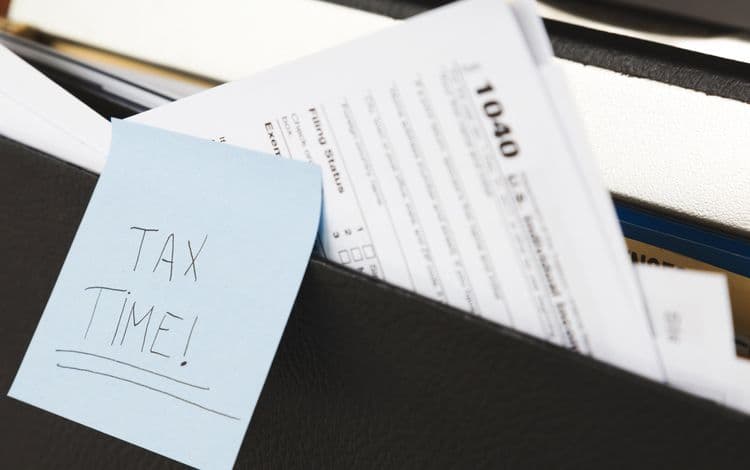In part, when exactly you have to file your business tax returns will depend on the structure of your business. Whether it be March 15 or April 15, you need to understand going in when it is you are supposed to be filing…That said, there are other factors to consider when it comes to business taxes. From paying you're estimated to what happens if you fail to meet a deadline, we have provided a quick guide to give you some more insight into the often complex topic of business taxes.
So When Exactly Are Those Taxes Due?
Everyone knows that the dreaded tax day in this country is April 15. If the 15th happens to be on a weekend or some sort of holiday, it is then moved to the next available business day. For 2019, tax day fell on a Monday; next year as 2020 is a leap year, it'll be on a Wednesday.
If you own a small business, your tax day could be a little different, and again this is in part accredited to your company structure. As a sole proprietor or single-member LLC you will file with the rest of the country on the 15th. Along with your personal return, you also need to have a 1040 Schedule C.
On the other hand, if you are a Partnership or Multi-Member LLC, you will need to file your 1065 and Schedule K-1 supplied by each owner on March 15th. Same goes for S Corps—their Form 1120S and Schedule K-1 from all shareholders has a Mach 15th date. A C Corp though can file their returns on Apr. 15th.
Understanding Estimated Taxes
The IRS requires small business owners to pay what are called estimated taxes. This is basically income not subject to withholding. You pay these taxes throughout the year based on a predefined quarterly system. You will only pay estimated taxes if you expect to owe $1000 or more come tax time. A corporation, unlike a sole proprietor, will pay estimated if they believe they will owe more than $500. The IRS does provide a worksheet in Form 1040-ES, Estimated Tax for Individuals (PDF/), or Form 1120-W Estimated Tax for Corporations (PDF/) in order to help you calculate what your estimated payments should be.
Figuring Out What You Owe in Estimated Tax
In order to better understand how estimated taxes work and what you can expect to pay, you need to calculate your expected adjusted gross income for the year; this would be your taxable income along with deductions and credits.
The worksheet in Form 1040-ES will then walk you through the steps of calculating what you should pay quarterly. Keep in mind, you want to come as close as possible to the income you expect to make during the year. You can readjust this amount with each new quarter, as you will successively have a better idea of how much you are actually earning as the year goes on. If you grossly misjudge your income and underestimate how much you should pay, you could be looking at penalties and fees; whereas if you overestimate then you stand the chance of overpaying your taxes.
For the tax year of 2019 the expected estimated tax payments are due on:
- April 15, 2019
- June 17, 2019
- Sept. 16, 2019
- Jan. 15, 2020
You have the option of paying online, by mail or even phone. In Form 1040-ES you will find a detailed breakdown of all of the ways you can pay. One of the most convenient payment methods is through the Electronic Federal Tax Payment System (EFTPS/). Via this system you not only have the ability to pay your estimated taxes, but you can also pay tax deposits as well as your installment agreement payments. The EFTPS system additionally enables you to track your payment history so that you know exactly what part of the debt has been satisfied and what your remaining balance is. Corporations are actually required to utilize this system.
Filing a Tax Extension
Sometimes we just can't meet the government's deadlines when it comes to filing and paying business taxes; in this event, there is an extension option that you can submit. This will give you more time to gather your records and potentially get the money together to pay any income tax owed. There may be penalties and fees attached so it is optimal to try and pay your taxes on time. For late payments, you could be penalized up to .5% of the unpaid taxes per month. Extensions vary again depending on business structure: sole proprietors and single-member LLCs have until Oct. 15th. Partnerships and multiple-member LLCs along with S Corps have to submit their tax returns by Sept. 15th. C Corps can file their taxes on Oct. 15th if opting for an extension.
Missing a Business Tax Deadline
It happens; however, keep in mind that missing a deadline can add penalties and other such fees. If you happen to miss your deadline, then still go ahead and file as soon as you can. If you can't pay in full, it is important to contact the IRS so that you can try and set up an installment agreement by way of payment plan. They want to know that you are making an effort.
Stay Current
The best thing you can do for yourself and for your company is to keep up to date on your taxes and the applicable deadlines. Paying on time and filing when you're supposed to allow your company to stay on the good side of the IRS—trust us, the last thing you want to do is to get on the IRS's bad side.
Enlisting the aid of an accountant is certainly one way to help you juggle the IRS deadlines and requirements. Many CPAs specialize in business taxes and can even help you to maintain organization by securing and storing all relevant documents that you will need come tax time.
